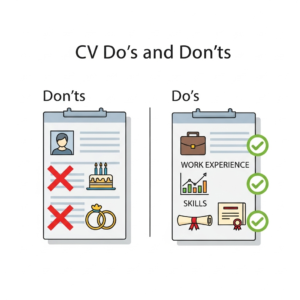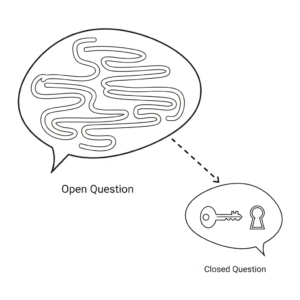In a rapidly changing job market, one thing remains constant: the value of transferable skills. Whether you’re staying in your current industry, exploring new career options, or facing redundancy, transferable skills offer the flexibility and security needed to navigate an uncertain future.
According to a 2022 report by the World Economic Forum, over 50% of all employees will need reskilling by 2025. This isn’t just about technical roles; it’s about adapting to a world where roles, industries, and expectations evolve faster than ever. So, how can professionals remain competitive and confident during these transitions? The answer lies in developing skills that work across sectors and job titles.
What Are Transferable Skills?
Transferable skills are competencies and abilities that can be applied in multiple roles and industries, regardless of the specific job title. They’re the soft and hard skills that make you a versatile, resilient candidate.
Examples include:
- Project management
- People management and leadership
- Data literacy and digital analysis
- Artificial intelligence (AI) awareness and integration
- Communication and language fluency
As HR professionals, we often see candidates unsure about their next step. Maybe you want to change careers but don’t know where to start. Maybe you’ve been made redundant and feel like you’re starting from scratch. The good news? You’re not. You already have valuable skills—you just need to learn how to frame and apply them differently.
Project Management: The Universal Skill
Project management is no longer just for construction or tech. It’s a fundamental skill in nearly every industry. From organising a marketing campaign to leading an HR onboarding programme, knowing how to manage timelines, resources, and stakeholders is critical.
Courses like PRINCE2, PMI, or even short Udemy certifications can help you build these capabilities. According to the Project Management Institute, employers will need to fill 2.3 million new project-oriented roles each year through 2030.
People Management: Leadership That Translates
No matter your role or industry, the ability to lead, manage conflict, provide feedback, and build trust is essential. A study by Gallup found that 70% of team engagement is directly influenced by managers. So if you’re good with people, your skill set is valuable — everywhere.
Investing in short courses on emotional intelligence, performance management, or team leadership can greatly expand your potential job options.
Data and AI: Skills for the Present and Future
We live in a data-driven world. From retail to healthcare, employers want people who can read, interpret, and act on data. Courses in data literacy, Excel, Google Analytics, or Power BI are accessible and immediately applicable.
Similarly, understanding how Artificial Intelligence (AI) tools work is now a critical skill. You don’t need to be a developer to benefit from AI literacy. Many platforms offer intro courses on AI for non-tech professionals. McKinsey’s research suggests that AI adoption could create new roles across almost every sector, from finance to customer service.
Language Skills: Your Gateway to Global Opportunities
In today’s global economy, language skills are more than a nice-to-have. They’re strategic. Speaking another language improves your ability to enter international markets, work with global teams, and understand cultural context.
Learning a new language (or improving your business proficiency) in Spanish, French, Mandarin, or German opens new doors. Platforms like Duolingo, Babbel, or LinkedIn Learning make language learning accessible on your schedule.
Why This Matters More Than Ever
You don’t need to know your next job to prepare for it.
Transferable skills are a safety net during uncertainty and a bridge toward future opportunities. They are the skills that will remain valuable whether you work in public policy, healthcare, technology, or non-profits.
As HR professionals and career coaches, we encourage individuals to shift their mindset from “what job do I want?” to “what skills can I build now that will serve me later?”
Final Thoughts
Whether you’re changing roles, pivoting industries, or starting fresh, start by building skills that go with you. Project management, data, leadership, AI, and languages are all in-demand, cross-functional skills that employers value across the board.
Remember: You don’t need to wait for clarity to start learning. Taking one short course can open doors you didn’t even know existed.
If you’re not sure where to start, begin with one question: What skill would I want to have six months from now, no matter what job I’m in?
#TransferableSkills #CareerDevelopment #Upskilling #FutureOfWork #HR #Leadership #AI #ProjectManagement #CareerChange










